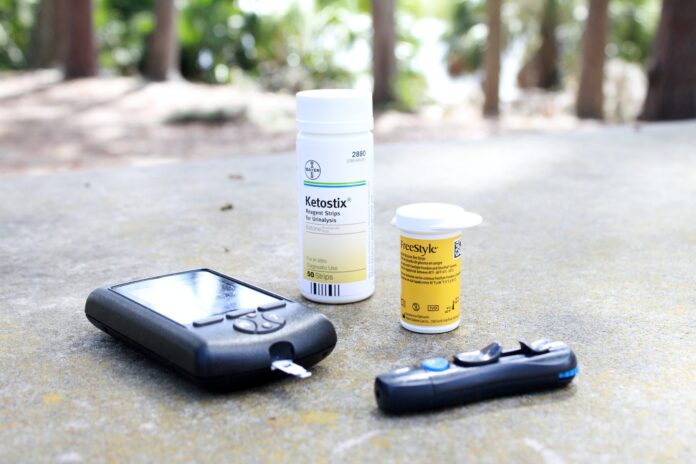
Ayurvedic Treatment for Diabetes: A Holistic Approach to Managing Blood Sugar Levels
In Ayurveda, the ancient Indian system of medicine, two terms – Prameha and Madhumeha – are used interchangeably to describe increased urination, commonly correlated with Diabetes. Ayurveda emphasizes understanding the root cause of the disease, focusing on metabolism, and making modifications in ‘Aahar’ (diet) and ‘Vihara’ (lifestyle) to effectively manage and treat diabetes. This holistic approach aims to address the underlying imbalances in the body and promote overall health and well-being. In this article, we will explore various Ayurvedic strategies and lifestyle changes that can help individuals manage their blood sugar levels and lead a healthier life.
1. Move Your Body
Inactivity can contribute to insulin insensitivity and hinder the body’s ability to utilize glucose as energy effectively. Regular exercise plays a vital role in keeping the body fit and enhancing its ability to fight against diseases. Engaging in a minimum of 20 minutes of exercise every day is recommended to keep the body active and healthy. Activities such as brisk walking, gardening, playing with pets or children, and everyday household chores can also be beneficial in maintaining overall health.
2. Keep a Check on Your Eating Habits
Maintaining a healthy body mass index and reducing excessive fatty tissues in the body can significantly improve insulin sensitivity. Adopting healthy eating habits is crucial for good digestion and managing blood sugar levels. Here are some dietary guidelines to consider:
- Eat only when you’re hungry and focus on incorporating more vegetables into your diet.
- Avoid consuming deep-fried foods as they can contribute to weight gain and insulin resistance.
- Have your dinner at least two to three hours before bedtime to aid digestion and prevent nighttime spikes in blood sugar levels.
- Chew your food properly and eat slowly, allowing for better digestion and nutrient absorption.
3. Say Yes to Beneficial Foods
Including certain foods in your diet can have positive effects on managing diabetes. Ayurveda suggests incorporating the following:
- Bitter vegetables such as bitter gourd, fenugreek, mint, brinjal, radish, and carrot, which can help improve cholesterol levels.
- Vegetables like mushrooms, broccoli, onions, eggplants, amla (Indian gooseberry), aloe vera, spinach, and tomatoes, which provide essential nutrients and antioxidants.
- Fruits, linseed oils, and condiments with anti-diabetic properties, such as coriander, cumin, turmeric, cinnamon, mustard, and black pepper.
- Traditional Ayurvedic herbs with medicinal values, including triphala, gymnema, Himalayan cedar, and nut grass, which have been used as remedies for diabetes for centuries.
4. Say No to Unhealthy Choices
Certain foods and beverages can adversely affect blood sugar levels and should be avoided or consumed in moderation:
- Excessive consumption of curd, jaggery products, butter, milk, sweetened beverages, white bread, pasta, and rice can lead to imbalances in blood sugar levels.
- Opt for healthier alternatives and practice portion control to maintain stable blood sugar levels.
5. Let’s Get Health-Tea
Beverages can also play a role in regulating blood sugar levels. Ayurveda suggests the following options:
- Cinnamon tea, known for its pleasant taste, can help regulate blood sugar levels.
- Ginger tea aids digestion, reduces excess Kapha in the system, and supports blood sugar regulation.
6. Sleep Well for Balanced Blood Sugar
Adequate sleep is essential for overall health, including blood sugar regulation. Lack of quality sleep can lead to greater fatigue, increased appetite, and insulin resistance. On the other hand, a proper 8-hour sleep cycle allows hormones to regulate bodily processes effectively, including weight control, appetite, and immunity.
7. Stay Hydrated with Ayurvedic Tips
Ayurveda suggests specific practices to optimize hydration and promote overall well-being:
- Drinking water from a copper vessel, known as ‘Tamra Jal,’ is considered beneficial for balancing the doshas (Kapha, Pitta, and Vata) in the body.
- Fill a copper vessel with water at night and consume the water in the morning for optimal benefits.
- Infuse your water with flavors by adding lemon or cucumber slices to make it more refreshing.
8. Stress Less for Better Blood Sugar Management
Chronic stress can contribute to elevated blood sugar levels. Incorporating stress management techniques into your daily routine can be highly beneficial. Consider the following practices:
- Practice deep breathing exercises and meditation to promote relaxation and reduce stress.
- Be mindful of your emotions and identify triggers that cause anxiety and stress.
- Limit phone usage to create boundaries and minimize unnecessary stress from constant communication and emails.
Conclusion
Incorporating Ayurvedic principles into the management of diabetes can provide a holistic and personalized approach to maintaining balanced blood sugar levels. By focusing on lifestyle modifications, dietary adjustments, regular exercise, quality sleep, and stress management, individuals can take proactive steps towards achieving optimal health and well-being. Remember, always consult with a qualified Ayurvedic practitioner or healthcare professional for personalized guidance in managing diabetes.
FAQs (Frequently Asked Questions)
1. Can Ayurveda cure diabetes?
While Ayurveda offers effective strategies for managing diabetes, it is important to note that it may not cure the condition completely. Ayurvedic treatments focus on holistic approaches to balance the body and promote overall health.
2. How long does it take to see results with Ayurvedic treatments?
The timeframe for experiencing results may vary depending on individual factors such as the severity of the condition, adherence to Ayurvedic guidelines, and overall health. Consistency and patience are key when following an Ayurvedic treatment plan.
3. Are there any side effects of Ayurvedic remedies for diabetes?
When used as directed and under the guidance of a qualified practitioner, Ayurvedic remedies generally have minimal side effects. However, it is important to source herbs and remedies from trusted suppliers and inform your healthcare provider about any ongoing treatments or medications.
4. Can Ayurveda be used alongside conventional medical treatments for diabetes?
Yes, Ayurveda can be used alongside conventional medical treatments. It is essential to inform your healthcare provider about any Ayurvedic remedies or practices you are incorporating into your diabetes management plan.
5. How often should I consult an Ayurvedic practitioner for diabetes management?
The frequency of consultations may vary depending on individual needs and treatment plans. Initially, more frequent visits may be necessary to assess progress and make adjustments as needed. Subsequently, regular check-ups can help ensure the effectiveness of the treatment and provide ongoing guidance.




















